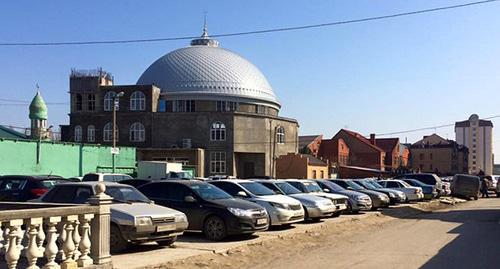
08 September 2017, 09:00
Imam of Makhachkala mosque reports attempt to kidnap his son
In the evening on September 7, in Makhachkala, unidentified people forced into a car an 18-year-old son of the Imam from the Makhachkala Salafi mosque. When he managed to escape they fled. This was reported by Imam Nigmatulla Radjabov himself.
According to him, the kidnappers wore the police uniform, and the incident occurred near the "Tangyim" mosque and the Imam's house near the mosque. The attempt of kidnapping was recorded by a video surveillance camera.
The young man said that people who arrived in two cars waited for him, and when he left the house, they stopped him, used abusive words and forced him into their car. Meanwhile, they failed to introduce themselves or to explain their actions, the "Novoe Delo" reports.
"I have never been informed of any complaints about my son. Abdulla is not engaged in anything illegal. He finished school. Now he goes to training. I treat an attempt to kidnap him as a provocation and a desire to put pressure on me," Nigmatulla Radjabov has added.
Full text of the article is available on the Russian page of 24/7 Internet agency ‘Caucasian Knot’.





Комментирование через Кавказский узел